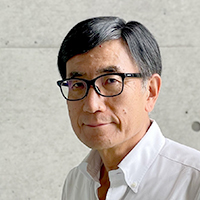
New Year Greetings for 2023 -Toward Sustainable JCI-
As a new year begins, I would like to convey my best wishes to one and all.
We all know that the Japan Concrete Institute is a public interest corporation. As such, we receive preferential treatment in various regards, but we are also subject to certain limitations. One such limitation is what is referred to as the "Three Financial Standards" as summarized in below.
- Ratio of Business for Public Interest Purposes: Public interest corporations must operate their business for public interest purposes so that the ratio of the business for public interest purposes in each business year will be 50/100 or more.
- Revenue of Business for Public Interest Purposes: When public interest corporations operate their business for public interest purposes, they must not obtain revenue that exceeds the amount compensating the reasonable cost required for the operation of the relevant business for public interest purposes.
- Restriction on possession of idle property amount: The amount of idle property of a public interest corporation must not exceed the amount that is calculated, as provided for in Cabinet Office Order, as the amount necessary to operate continuously in the following business year the business for public interest purposes of the same content and scale.
Public interest activities include research (research committees, etc.), standardization (creation of ISO and JIS drafts, etc.), and internationalization (collaboration with overseas academic societies, etc.). On the other hand, the corporation as a whole has also revenue-generating activities related to the administrative operation of the corporation. Revenue-generating activities include certification activities for Authorized Concrete Engineers and Authorized Chief Concrete Engineers, and Authorized Concrete Diagnosis & Maintenance Engineers. Concrete Techno Plaza, one of the events at our Annual Convention, is another revenue-generating activity. Activities related to the administrative operation of the corporation include the General Assembly and the Board of Directors.
So how do the above-mentioned standards affect JCI's activities?
In particular, the requirement of a Ratio of Business for Public Interest Purposes of 50/100 or more places strictures on expenditures for public interest and revenue-generating activities. If the amount of expenditures for public interest purposes is low, the amount of expenditures for revenue-generating activities must likewise be reduced. Conversely, if the amount of expenditures on revenue-generating activities is to be increased, the amount of expenditures on public interest activities must also be increased. Further, all our activities must be done within the income that we can obtain.
Amidst the COVID-19 pandemic, our certification activities, which are one of our revenue-generating activities, have seen the rapid increase in the cost of administering exams, owing in part to soaring test site costs. Thus, as we increase expenditures on revenue-generating activities, we also need to expend more on public interest activities. In addition, we have introduced e-learning as a training method for engineers who have been certified. The initial introduction cost was high, but thanks to the efforts of all concerned, cost efficiencies are now being achieved.
JCI's model of contributing to the development of concrete engineering by using the profits earned from its revenue-generating activities for the public interest while abiding by the three financial standards is being affected by the increase in costs for revenue-generating activities and the curbing of expenditures on research and study activities amidst the COVID-19 pandemic.
Based on the above, it is important that we ensure the full use of approved budgets by technical committees and other bodies working for the public interest, while improving expenditure efficiencies for revenue-generating activities. I would also like to encourage all our members to even more actively engage in research activities and to make full use of promotional activities such as lectures and seminars, as well as grant programs, and for young researchers in particular to seek further opportunities to interact with overseas researchers.
On the other hand, there are also ways to make JCI more sustainable on the revenue side.
As I mentioned above, to further expand public interest activities, we need to boost revenues from membership fees and activities. This means increasing the number of members and certification candidates.
As of September 30, 2022, the total number of JCI members was 6,649, including regular members, student members, and group members. In recent years, group members have been gradually increasing, while regular members have been gradually decreasing. By further increasing the number of members and certification candidates, JCI will be better able to actively develop research activities, disseminate research results, and develop human resources, while at the same time securing the income necessary to do so. Concretely, possible approaches include the following:
- Smooth transitioning of student members who have graduated or completed their studies at universities to regular members
- Reaching out to the younger generations in their 20s and 30s, which constitute a small percentage of our membership
- Providing the latest technical information to Authorized Concrete Engineers and Authorized Chief Concrete Engineers, and Authorized Concrete Diagnosis & Maintenance Engineers as well as candidates, and encouraging the latter to become certified engineers
- Actively promoting activities that teach elementary school students and junior and high school students, the future leaders of our world, about concrete
In terms of further strengthening JCI's financial footing, I believe that there are additional good measures to be taken, such as acquiring competitive funding through participation in technology development projects led by the government and other organizations, and strengthening commissioned research. In closing, we look forward to input from all our members and we appreciate your support.
Minehiro Nishiyama
President, Japan Concrete Institute
(Professor, Department of Architecture, Graduate School of Engineering, Kyoto University)







